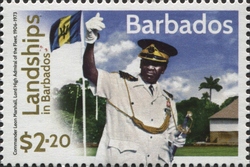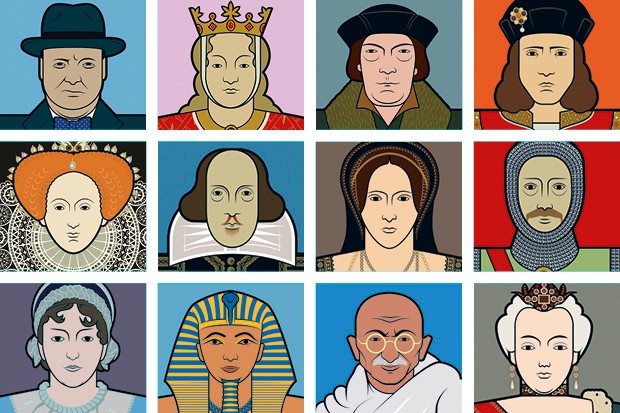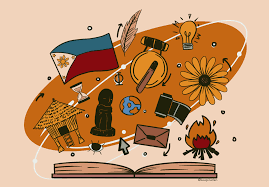Stamp: Commander Leon Marshall Lord High Admiral of the Fleet (Barbados 2016)
Commander Leon Marshall Lord High Admiral of the Fleet (Barbados 2016)
17 August (Barbados ) within release Landships in Bardados goes into circulation Stamp Commander Leon Marshall Lord High Admiral of the Fleet face value 2.20 Barbadian dollar
| Stamp Commander Leon Marshall Lord High Admiral of the Fleet in catalogues | |
|---|---|
| WADP Numbering System - WNS: | WAD:BB018.16 |
Stamp is horizontal format.
Also in the issue Landships in Bardados:
- Stamp - A Landship Tuk Band 1970's face value 0.10;
- Stamp - The Maypole face value 0.65;
- Stamp - Landship Performane, Crop over Heritage Gala 2009 face value 1.80;
- Stamp - Commander Leon Marshall Lord High Admiral of the Fleet face value 2.20;
- Stamp - Lord High Commander Vernon Nathaniel Watson face value 5;
- Mini Sheet - Landships in Bardados face value ;
Stamp Commander Leon Marshall Lord High Admiral of the Fleet it reflects the thematic directions:
A people's history, or history from below, is a type of historical narrative which attempts to account for historical events from the perspective of common people rather than leaders. There is an emphasis on disenfranchised, the oppressed, the poor, the nonconformists, and otherwise marginal groups. The authors typically have a Marxist model in mind, as in the approach of the History Workshop movement in Britain in the 1960s.
History (derived from Ancient Greek ἱστορία (historía) 'inquiry; knowledge acquired by investigation') is the systematic study and documentation of the human past
Costume is the distinctive style of dress and/or makeup of an individual or group that reflects class, gender, occupation, ethnicity, nationality, activity or epoch—in short, culture.
Humans (Homo sapiens, meaning "thinking man") or modern humans are the most common and widespread species of primate, and the last surviving species of the genus Homo. They are great apes characterized by their hairlessness, bipedalism, and high intelligence. Humans have large brains, enabling more advanced cognitive skills that enable them to thrive and adapt in varied environments, develop highly complex tools, and form complex social structures and civilizations. Humans are highly social, with individual humans tending to belong to a multi-layered network of cooperating, distinct, or even competing social groups – from families and peer groups to corporations and political states. As such, social interactions between humans have established a wide variety of values, social norms, languages, and traditions (collectively termed institutions), each of which bolsters human society. Humans are also highly curious, with the desire to understand and influence phenomena having motivated humanity's development of science, technology, philosophy, mythology, religion, and other frameworks of knowledge; humans also study themselves through such domains as anthropology, social science, history, psychology, and medicine. There are estimated to be more than eight billion living humans.


